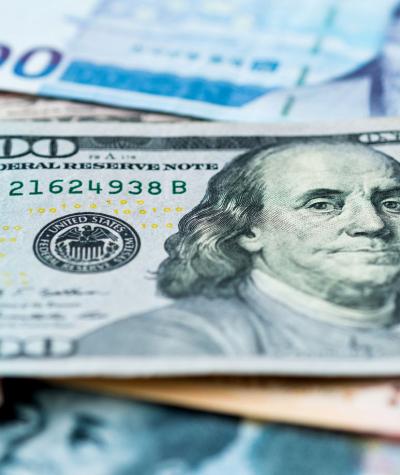Our democracy works best when voters have complete and accurate information about who’s spending money to influence elections. In addition to informing voters about where political money is coming from, electoral transparency also helps ensure that our elections are safe from corruption and foreign influence. Federal campaign finance laws require the disclosure of all political contributions and unequivocally prohibit foreign nationals from making campaign contributions or otherwise spending money to influence federal, state, and local elections.
But “soft money” — including money raised in circumstances where federal campaign finance laws don’t apply, such as money raised by state political committees — undermines federal elections.
Federal laws have banned the use of soft money in federal elections for over two decades, yet the practice appears to be stronger than ever: Last year, former president Donald Trump transferred $60 million that he raised through his leadership PAC to a super PAC backing his 2024 presidential campaign, while Florida Governor Ron DeSantis recently moved $82.5 million from his state PAC, “Friends of Ron DeSantis,” to a federal super PAC backing his presidential campaign.
Campaign Legal Center (CLC) filed complaints with the Federal Election Commission (FEC) — the agency tasked with implementing and enforcing federal campaign finance laws — against both candidates for violating the laws banning soft money, and those complaints are still pending.
Yet in the meantime, CLC learned of a different, though related, violation that prompted us to file a new complaint with the FEC.
According to Florida campaign finance disclosure records, a Canadian company, ECN Capital Corporation (ECN Capital), contributed over $100,000 between 2018 and 2022 to state political committees in Florida, including DeSantis’s 2018 and 2022 gubernatorial campaigns and his state PAC, Friends of Ron DeSantis. Moreover, ECN Capital’s U.S. subsidiaries reported contributing an additional $112,000 to the same committees during the same period.
As a corporation registered in Canada, ECN Capital is a “foreign national” under the law, and its head office is in Toronto (though, according to its website, it also has an office in West Palm Beach, Florida, suggesting why the company might be interested in supporting Florida politicians). ECN Capital’s leadership team appears to be comprised mostly, if not entirely, of Canadians.
The Federal Election Campaign Act unequivocally prohibits foreign nationals, including foreign corporations, from making contributions in connection with a federal, state, or local election – which means that the contributions attributed to ECN Capital are clearly illegal.
Moreover, DeSantis’s transfer of soft money from Friends of Ron DeSantis to a super PAC backing his presidential campaign raises the troubling prospect that foreign money could be influencing the 2024 presidential election.
A U.S. subsidiary of a foreign parent company can, in principle, make political contributions — so long as it does so with domestically-generated money, and no foreign national participates in the subsidiary’s decision-making process regarding the contributions. The concern with ECN Capital’s subsidiaries is that they appear to exist only on paper, and at least one, ECN (US) Holdings, has admitted that it is jointly managed by ECN Capital’s CEO, who appears to be a Canadian national.
If ECN Capital’s subsidiaries are managed by the same officers as the parent company, and foreign national officers participated in the subsidiaries making contributions, then those contributions would also be illegal. In fact, a similar complaint that CLC filed in 2019 led to a massive $975,000 fine against Barry Zekelman, a Canadian steel tycoon, for participating in his company’s U.S. subsidiary making a seven-figure contribution to a super PAC that supported Trump’s 2020 presidential campaign.
Federal campaign finance laws strive to preserve and uphold the integrity of our elections, including by stopping foreign influence in its tracks. But in order to do that, these laws have to be enforced; the FEC has said that stopping foreign influence is one of its top priorities, and it can demonstrate that here by taking swift action to enforce the law in this case.

